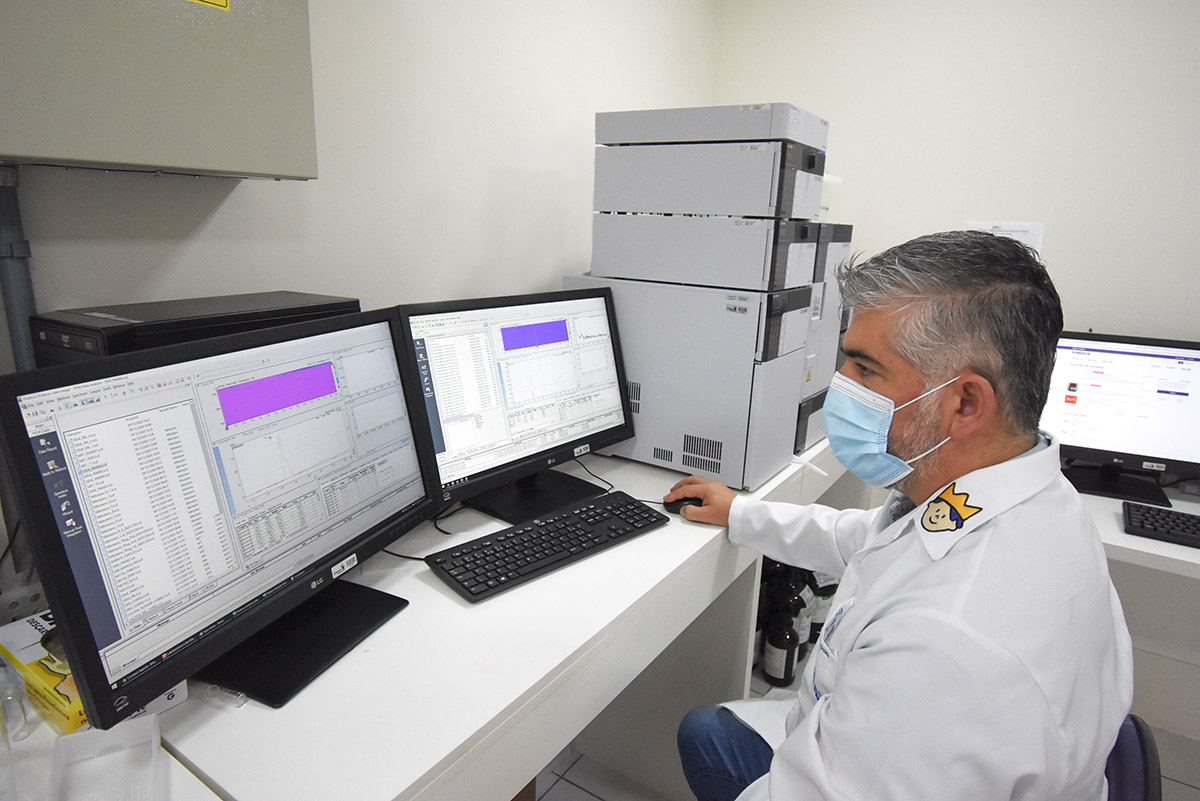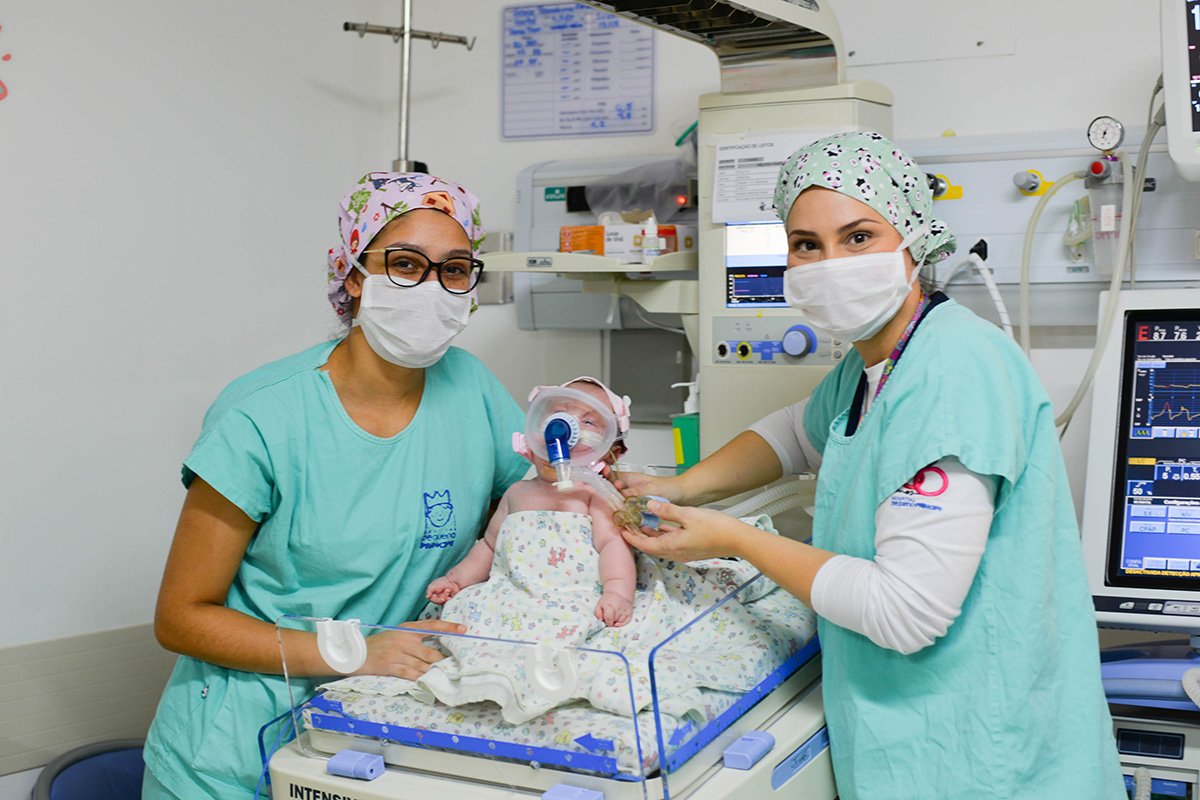Pequeno Príncipe launches a high technology service to identify mobility problems
Exams conducted at the Computerized Gait Laboratory enables accurate diagnosis and treatment; the service is the only one in Paraná State to perform clinical assessment
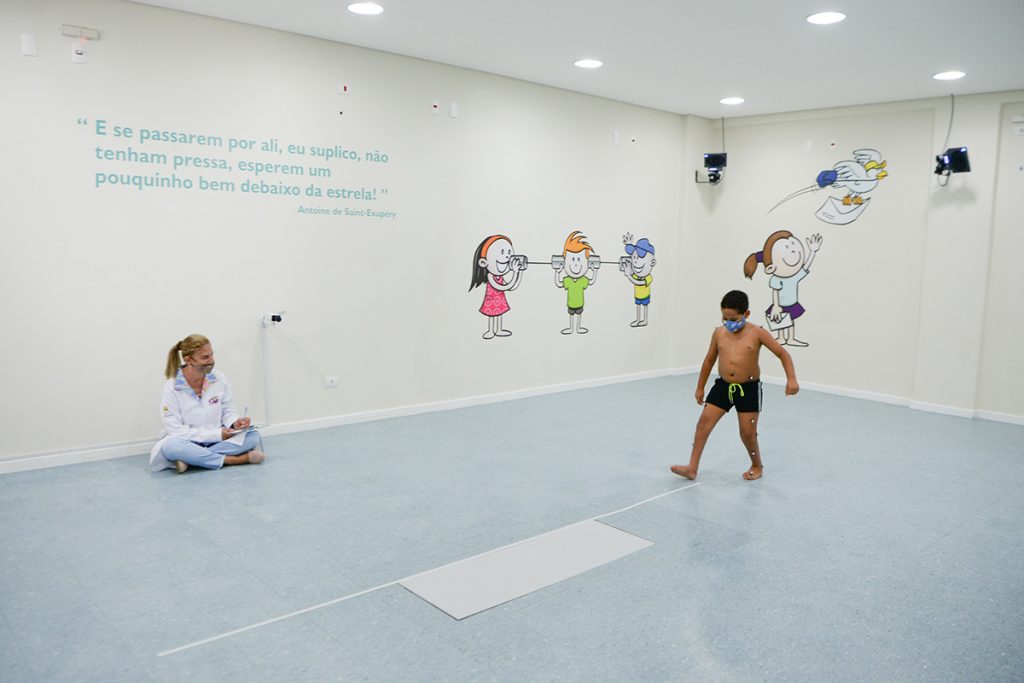
Last February marked the kick-off of the Computerized Gait Laboratory and the Virtual Reality Rehabilitation Room of the Pequeno Príncipe Hospital. Installed at the Rehabilitation and Coliving Center of Pequeno Príncipe (Appam Program), located in the city of São José dos Pinhais, the new services broaden the possibilities of diagnosis bringing more opportunities of even more accurate treatments to the patients with mobility problems.
According to the Head of the Orthopedics Service of Pequeno Príncipe, Luiz Antonio Munhoz da Cunha, “the computerized gait assessments identify walking disorders that cannot be detected by the physical exams and visual analysis. The method helps the team in the decision making for treatments and follow up of patients with gait problems”. The specialist points that the technology is more indicated to the treatment of patients with sequelae of neuromuscular disorders, such as cerebral palsy, stroke, traumatic brain injury, myelomeningocele, spinal cord injury, among others. And also in cases of isolated musculoskeletal disorders, such as amputations.
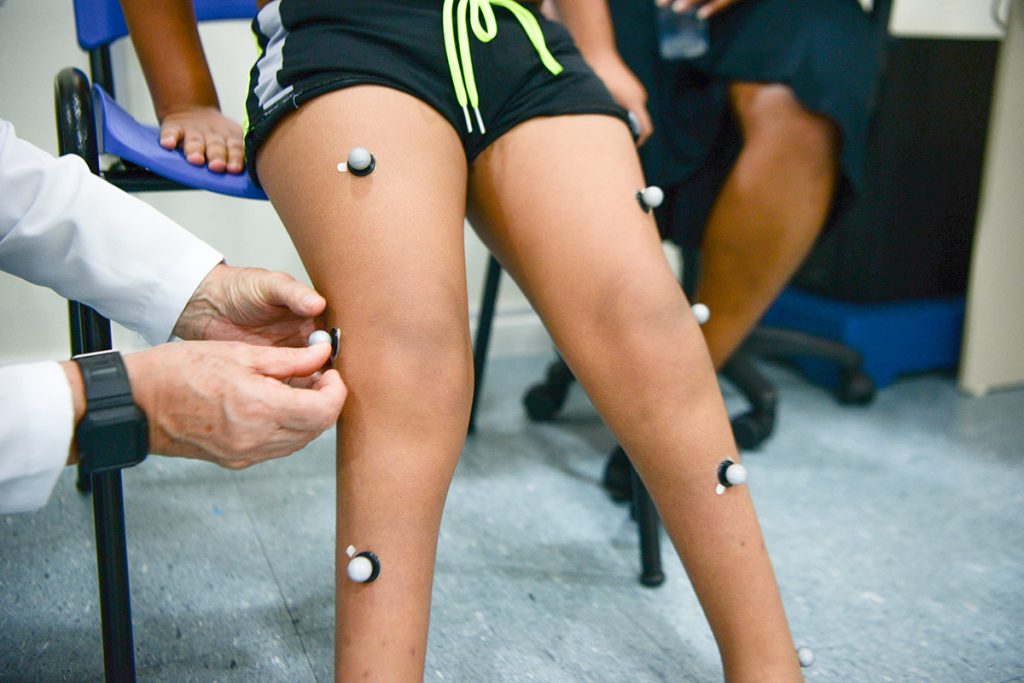
The Computerized Gait Laboratory is the only open facility in the state of Paraná to perform clinical assessment of patients with gait disorders. “We can use the Laboratory for many purposes. It supports specially surgeries of the locomotive system, being in the pre- or post-surgery, quantifying and advising the planning, as well as verifying if what was done brought the expected benefits to the patient,” says the specialist.
In its turn, the Virtual Reality Rehabilitation Room, which is also part of this project of innovation in healthcare, offers virtual reality games as a ludic and therapeutic alternative. This way, the patient gets even more involved in the rehabilitation process and the doctors can measure the results and the evolution of the treatment in a more accurate way.
The projects were financed with funds raised through the National Program of Support and Attention to Disabled People’s Health (Pronas/PcD) and investments from several companies.
How to use the Laboratory
The physician is the responsible to refer the patient to the computerized gait exam. He needs to fill a form containing technical information on the patient’s condition, who has to meet some requirements:
- being able to take ten consecutive steps (with or without assistance);
- being, at least, 4 complete years of age;
- being able to follow simple orders; and
- tolerating the placement of markers and adhesive electrodes on the skin.
With the proper form in hands, the family can contact the Rehabilitation and Coliving Center of Pequeno Príncipe to schedule the appointment.
For more information, please call +55 (41) 3382-5298 or send an email to laboratorio-marcha@hpp.org.br.
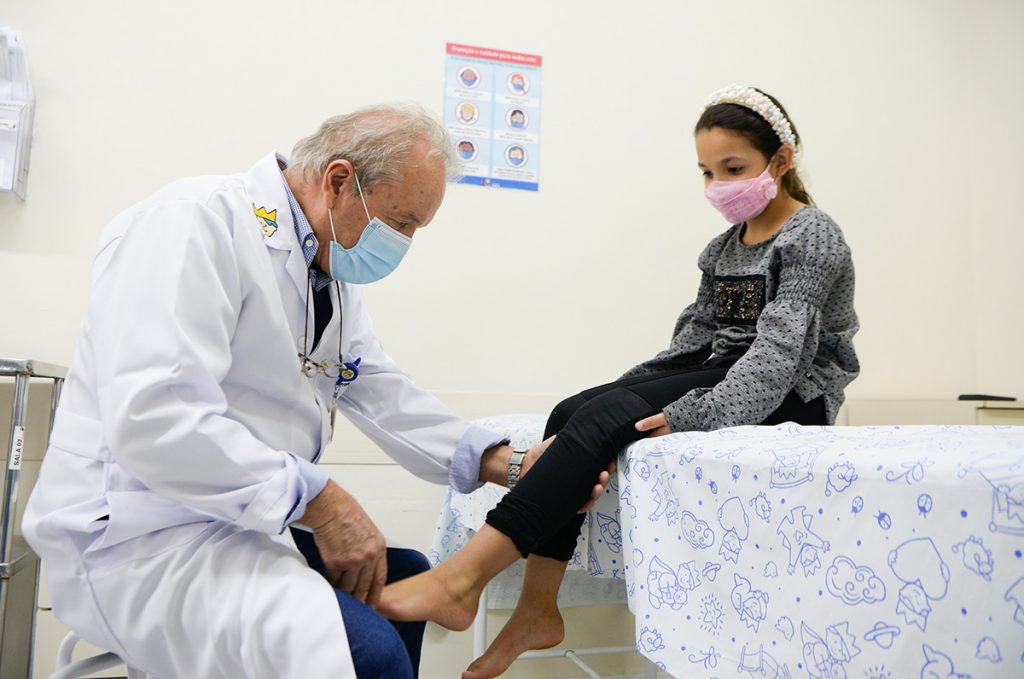
Rehabilitation and Coliving Center
The Rehabilitation and Coliving Center of Pequeno Príncipe (Appam Program) was born as a project devoted to the assistance of children and adolescents with myelomeningocele. Time went by and the facility was remodeled to serve patients with other disabilities, such as: epilepsy, Guillain-Barré syndrome, hearing loss by neurosensorial disorder, cerebral palsy, spastic hemiplegia, tetraplegia, chromosomal anomalies, visual impairment, and microcephaly.
The service also offers rehabilitation in the areas of physical therapy, psychology, occupational therapy, and social services; promotes coliving and social inclusion, ludic, educational and cultural activities; as well as provides homecare support.
More
Equipment enabled by the funds raised at the Pequeno Príncipe Gala supports research and healthcare activities
Liquid chromatography allows researchers to monitor the level of drugs in patient’s blood, thus helping to choose more accurate treatment
Learnings brought by the COVID-19 pandemic help to reduce mortality rate
Mortality rate dropped from 1.6%, in the first year of the pandemic, to 0.1% in the beginning of the third year. New drugs and equipment are also among the great learnings


